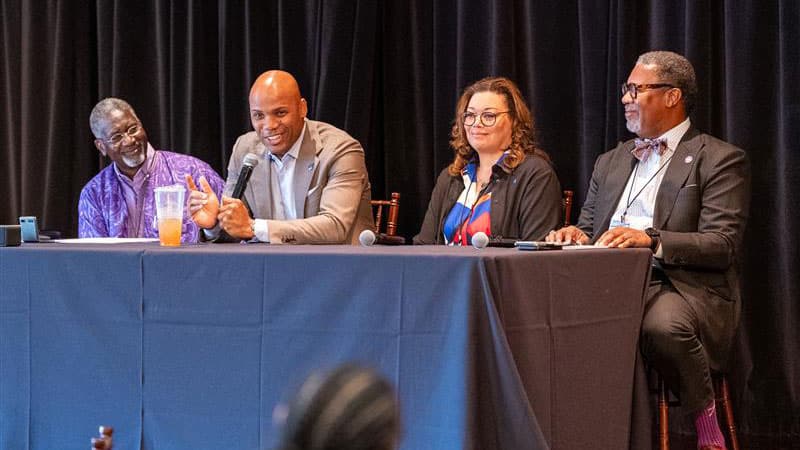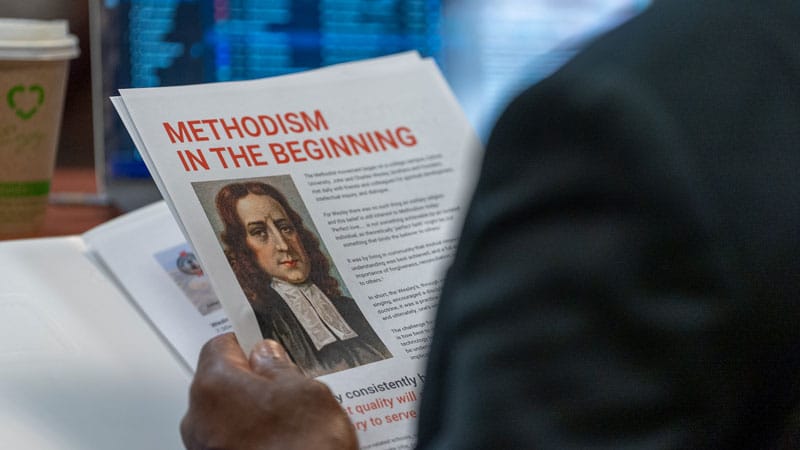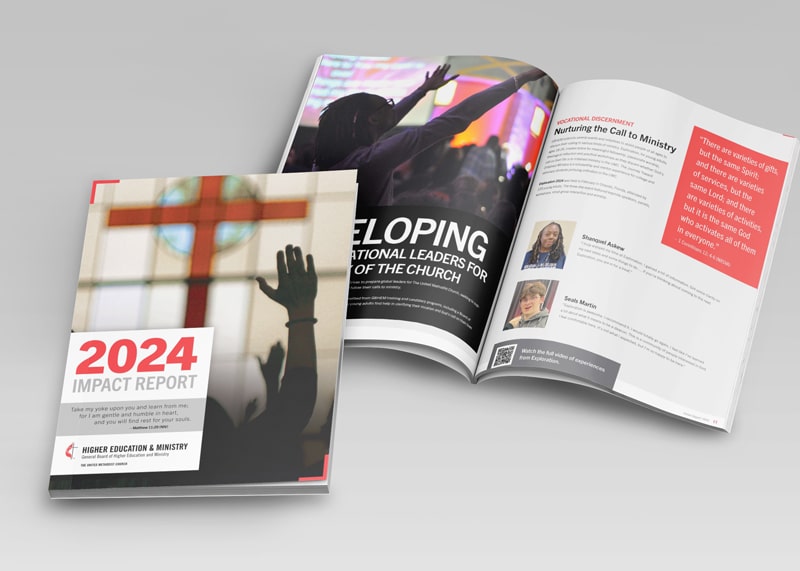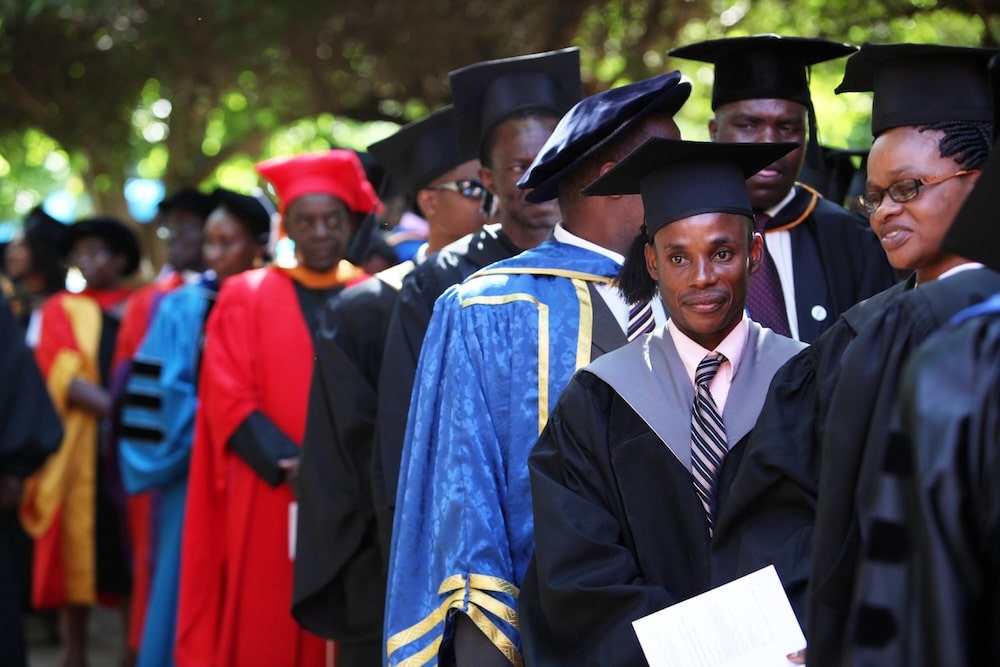GBHEM Addresses Interfaith and Religious Life on College Campuses at Intersections Conference
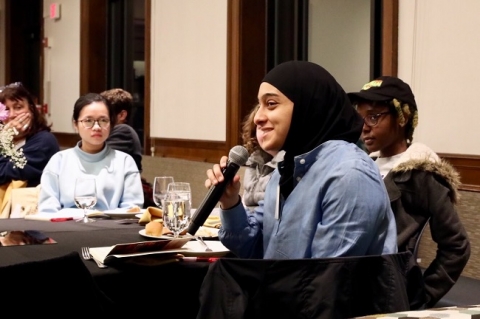
The General Board of Higher Education and Ministry (GBHEM) hosted collegiate and religious leaders for a weekend-long conference centered on the impact of increased religious diversity on college campuses. The Intersections Conference was held in Nashville, Tennessee on March 23-25, 2018.
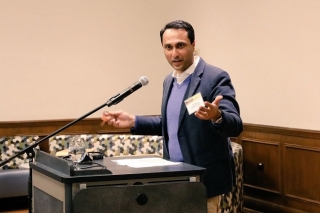
Eboo Patel, Ph.D., founder and president of Interfaith Youth Core, gave the keynote address. Patel founded Interfaith Youth Core on the idea that religion should be a bridge of cooperation rather than a barrier of division. He led off the address, posing the question, “What does it mean to build a healthy religiously diverse democracy?” He shared that a democracy is a place where you can make your personal convictions public, and diversity is not just the differences a person likes. “Is it any wonder that literally for centuries political philosophers thought you needed homogeneity to be a democratic society? People have to recognize that they will disagree on some fundamental things, and work together on other things.”
Patel shared an example of two students in a world religion course. The students, Iraq veteran and a Muslim woman, had very different life experiences and strong personal convictions. “This is not a distraction,” concluded Patel. “This is what it means to teach a world religions class. The job of a professor or chaplain is to build a community that can hold together divergent groups. You should expect conflict.” Patel concluded by challenging the audience to recognize their own biases, noting, “The most dangerous problem of our time is tribalism.”
Rev. Dr. Emilie M. Townes, dean of Vanderbilt Divinity School addressed guests, “It is indeed an honor to have such a room full of people of goodwill and earnest commitment to the work of the church—the work of who we can be, and how we can be—in a society that clearly needs us…and we need each other.”
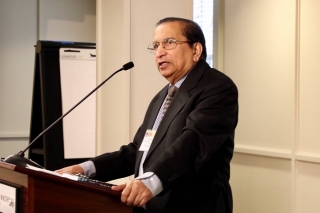
Rev. S. Wesley Ariarajah, Ph.D., professor emeritus of ecumenical theology, Drew University School of Theology, presented the closing keynote address at the conference. He spoke on the challenges facing the church today, including secular culture competing against religious communities and faith traditions; the challenges and limited influence today’s Christian adults have on younger generations due to the powerful influence of technology and internet culture; and the reality of religious plurality.
“The church is at an extremely important stage of its life. Gradually, as interfaith reality grows, and as people increasingly accept other religious traditions as neighbors, the church will face the realities of religious plurality,” expressed Ariarajah. “None of the religious traditions have been formulated and explicated, or practiced for a long time, with plurality as a reality. All religious traditions are internal units of their own. When they were conceived, they were not conceived for a religiously plural world.”
Ariarajah delved into what he calls the “in-built challenge” of this reality. He described the challenges facing the church today as profound and potentially transformative. He challenges higher education circles to rethink faith and theology for religious plurality to “become more meaningful to the world in which we live.” He continued by saying, “Part of our higher education and ministry is to bring about a new theological understanding of other faiths, and a new theological understanding of what we believe without compromising our commitment and discipleship to Jesus Christ.”
Expressing the importance of interfaith dialogue, Ariarajah stressed that people can no longer do theology without becoming aware of what other religious traditions say. “We not only need to know the other, but also, we need to know the other to know ourselves. Other people’s religions can completely and radically renew our own theology.”
He concluded by sharing that there is a need for a public theology, or theology that is not done for the benefit of the church, but for humankind. That theology cannot be done without Christian theology, it must be interfaith. “Instead of only concentrating on how we live as Christians across other religious traditions and campuses, the Christian theological tradition is in need of renewal and it has to come from the places where there is higher education.”
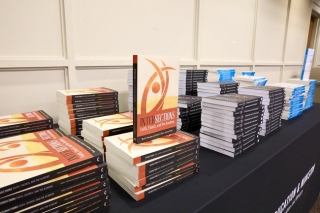
Each attendee of the Intersection conference received a copy of the book “Intersections: Faith, Church and the Academy,” released this year by GBHEM Publishing. The book includes a variety of themed essays exploring the ways that faith-based institutions are responding to increases in religious diversity on their campuses. It is available for purchase on Amazon.com and Cokesbury.com.
The event included four panel discussions, each featuring contributors to the new Intersections book. The panels were designed with the purpose of establishing a forum to consider the ideas, approaches, and questions relating to religious diversity on college campuses.
For more information on GBHEM and the Division of Higher Education, visit www.gbhem.org.
Intersections: Faith, Church and the Academy Contributors: Kent Andersen, Wesley Ariarajah, Eva Semien Baham, Gladys Childs, Nathan “Eric” Dickman, Hans Gustafson, Dennis Hall, Mark Hanshaw, Timothy S. Moore, Eboo Patel, Chad Pevateaux, Nicholas Rademacher, Carolyn Roncolato, Jikyo Shoultz, John Tures, Aaron R. Twitchell, Diane Wiener
About GBHEM: As the leadership development agency of The United Methodist Church, the General Board of Higher Education and Ministry’s mission is to build capacity for United Methodist lay and clergy leaders to discover, claim and flourish in Christ’s calling in their lives, by creating connections and providing resources to aid in recruitment, education, professional development and spiritual formation. Every elder, deacon and licensed local pastor benefits from our training and candidacy programs. Many young adults find help in clarifying their vocation and God’s call in their lives through our leadership and discernment programs. Follow us on Twitter and Facebook: @GBHEM.
Related Posts
DETROIT — Leaders from United Methodist-related institutions, including seminaries and Historically Black Colleges and Universities called for justice, historical reckoning, and a renewed commitment to equity in higher education and society during a Juneteenth panel discussion.
In a joint meeting with the North American Association of Methodist Schools, Colleges and Universities (NAAMSCU) on June 19, the University Senate of The United Methodist Church reaffirmed and deepened its connection with UM-related educational institutions focusing on their United Methodist identity, academic excellence and social justice in higher education.
The General Board of Higher Education and Ministry 2024 Impact Report offers a detailed look at a year shaped by transition, renewed alignment and a deepened commitment to developing transformational leaders for the church and the world.
